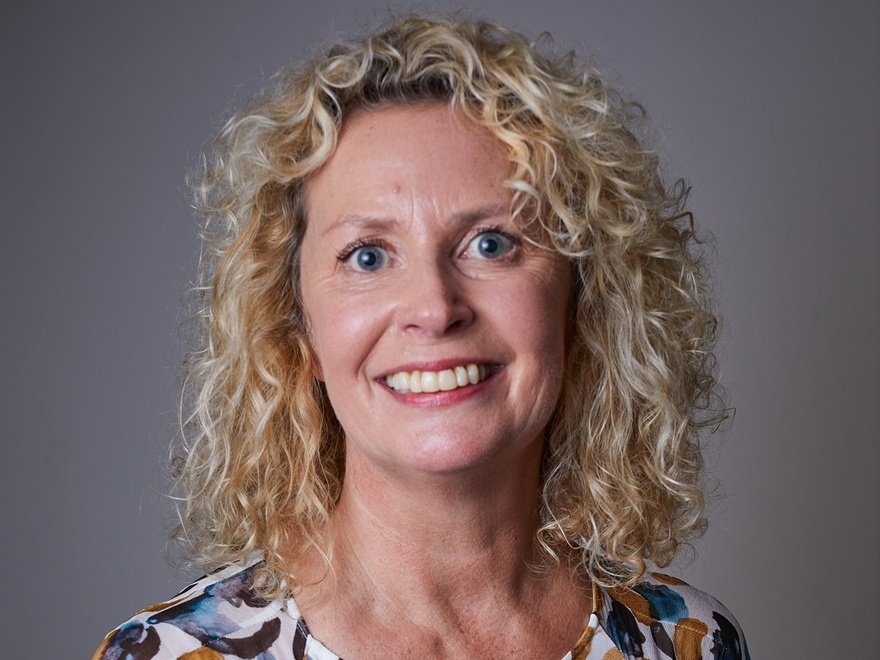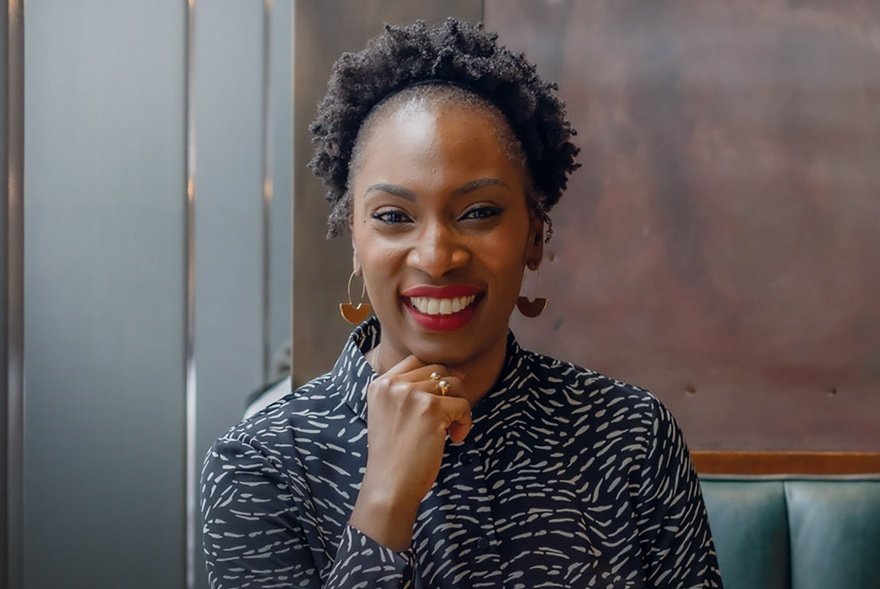Lessons on wellbeing in the workplace and retaining hospitality staff
Following a tumultuous year for the industry, speakers at this year's People Summit drove home the message that leaders must show emotional intelligence if they want to tempt their staff back to work. Rosalind Mullen reports.
Eating out and staying out in 2020/21
Karl Chessell, director of hospitality and food at data insight consultancy CGA, kicked off the webinar with a presentation of findings on future consumer behaviours.
First, he outlined how the pandemic had affected business. The shocking statistics showed that £80.8b has been wiped off hospitality revenue in the past year and, in net terms, more than 8,560 venues have closed.
Nevertheless, he was keen to send out a positive message. "The good news is that consumers are keen to return and spend their money," he said, adding that 81% of out-of-home users are likely to be back in venues by June.
Key trends
- The quality of food, drinks and services were prioritised by 57% of respondents, as was cleanliness, with experience and ambience less important.
- Customers are enjoying table service.
- The demand for restaurants and bars close to home is likely to continue as people say they will keep working from home (70%). However, they will travel for other leisure and late-night venues.
- Some 67% of respondents said it was important that brands treat workers fairly; 46% valued brands that source local food; and 41% wanted brands to support local initiatives.
- The digital customer journey and the growth of omnichannel are here to stay.
Understanding what all this means for operations is key, said Chessell. Some 96% of employers expect they will need to recruit later in the year, but 60% are concerned that hospitality is not seen as a career of choice, and 70% expect staff shortages across all roles.
Growing the talent pool
As the industry sets about regrouping its teams, a panel gathered to discuss how we can better engage with and attract students and new recruits to create a skilled workforce.
The panel
- Chair: James Stagg, editor, The Caterer
- Jamie Campbell, director of learning – hospitality, CPL Learning and Access Company
- Sandra Kelly, UK director, People 1st
- Conor O'Leary, managing director, Gleneagles
- Jo Simovic, chief operating officer, Umbrella Training
- Lewis Walker, head of higher education, the College of Food, University College Birmingham
What are young people looking for in an employer?
Lewis Walker (LW): To develop the training they started at college. They want career progression through development. They look for an employer with CSR, sustainability and good working practices – work-life balance is important. Employers need to understand that flexibility is important to this generation.
With career paths, do we need a wider demographic to which more people can relate?
Jamie Campbell (JC): Yes. It should not just be ‘bar to boardroom'. Not everyone wants to, or is able to, progress to a boardroom in this industry. It may be that they are happy in their role and can progress within it. We need to show you can have a great job without achieving seniority.
Jo Simovic (JS): Yes, they might want to be a mentor for people coming through their department. Let's look at a more agile way of talent and career mapping.
Support needs to go beyond the job to include mental health awareness and being more mindful. If you support people beyond their current tasks, you keep them longer.
Can you give us an overview of the recruitment challenges?
Sandra Kelly (SK): The industry is not just being disrupted by Covid: it has been in flux for a long time. Employers need to think of leadership and strategy to ensure business continuity is resilient, while developing a workforce with diverse, motivated people empowered for change.
Some 30% of jobs will be replaced by automation by 2030 and PwC has said that by 2021, 50% of employees will have to develop new skills to remain employed. Leaders need to build internal skills, which takes investment and time, but it will increase productivity and you will retain your workforce.
Managers need to have high emotional intelligence and build relationships. Those who have been in touch with teams during the pandemic will be rewarded with loyalty.
Those who have been in touch with teams during the pandemic will be rewarded with loyalty
A lot of students stayed on to do another level during the pandemic, so you need to think about the quality of job you are offering. You need to commit to a code of conduct to pay fairly and offer the hours and training opportunities they need. More importantly, this has got to be driven by diversity and inclusion.
The importance of wellness, CSR and flexibility keep coming up, but are operators marketing themselves realistically?
Conor O'Leary (CO): We are hoping to get a sustainability award and we want to do this for our team. Everyone wants to be part of CSR. We can see in their social media how aware they are. [Here in Auchterarder] we see Tesco as competition, because we're not in a city and we need to compete on culture and pay. It is a question of candidates thinking, "Do I want to work in that industry, or one down the road?".
JS: The majority of businesses start off with a good package, but in times of pressure leaders are not strategic, so they ask that apprentice chef to stay an additional five hours. They miss the bigger picture. People have a perception of the industry that is worse than it is. We need to do it right day in and day out, not just when we are not too busy.
Breaking with tradition and the new normal
A lot of lessons have been learned from the challenges of the past year. Our panel discussed the new people and culture landscape.
The panel
- Chair: Jane Sunley, founder and chief executive, Purple Cubed
- Donna Catley, chief people officer, Compass Group UK & Ireland
- Kathy Dyball, brand director, Caterer.com and CatererGlobal
- Holly Glover, director of HR, the Farncombe Estate
- Matt Grech-Smith, co-founder and co-chief executive, the Institute of Competitive Socialising
- Gavin Smith, managing director, Pizza Pilgrims
What have you learned this year?
Kathy Dyball (KD): It was a massive reminder that employees are individuals and that they make up your culture, your culture is your brand, and your brand is how you become successful.
We've had a skills gap for decades and it's not for want of initiatives, so we now need to think about our individual responsibility. It comes back to employers: you have to solve it. Think: who do I want to hire, what do they want and what do I have to do to attract them?
We've had a skills gap for decades and it's not for want of initiatives, so we now need to think about our individual responsibility
There's a lot of technology to help recruitment, such as AI and psychometric testing, but if you haven't thought about who you are as a business, all that will be pointless.
How has leadership changed?
Matt Grech-Smith (MG): Pre-pandemic we didn't get too involved with the personal lives of our teams, but now that's changed. We want to know what stresses they are facing. Leaders have been allowed into their lives, so there is now a different relationship.
Donna Catley (DC): A positive phenomenon is that we've been welcomed into the lives of our teams [through Zoom] – with our children, dogs, homes, bedrooms – that openness of where you live and who you are is a real positive.
An important element of leadership at Compass has been simply showing care for colleagues and their families, and recognising their worries with humility, because we are all in this together. As leaders we've shown our frailties – we don't always know the right answer, sometimes we have concerns about our own mental health – and to show that is a real milestone in leadership.
What are you doing in terms of wellbeing?
Holly Glover (HG): We recognised the team weren't earning gratuities or getting overtime, so we launched a financial wellbeing website allowing them to see how to help themselves. People don't always want to air their financial worries.
Mental health is a huge concern, so we have two mental health first-aiders on the team and make sure we have regular one-to-one calls. We also recognised that physical wellbeing is related to mental health, so we offered, for instance, physical challenges to raise money for charity.
Share one piece of advice for businesses that want to be people-centric.
MG: I would say listen to and consult with staff. You can't sign dictats from up high. And you can't make fluffy promises. The employee is in the driving seat, so your promises need authenticity.
Gavin Smith (GS): Be honest. We don't have all the answers, so explain to people and listen to them. For instance, we respected those who didn't want to come into work on public transport, so it was about being pragmatic. You have to lean in during a crisis.
Compass Group UK and Ireland on the four pillars of social mobility
Compass Group's chief people officer Donna Catley presented the foodservice company's ‘Social Mobility Report' at the Summit.
"It is about fairness and equality, regardless of race or gender, of what your parents did for a living, where you grew up, or what your accent is," she told delegates.
"If we genuinely want to understand our consumers, we need to be the whole of society. That means we have to welcome everyone into our organisations, so there is a clear commercial imperative."
Social justice is also a key driver for Compass. As an employer of 45,000 people across the UK post-pandemic, the company is reaching out to offer opportunities to disadvantaged and disabled people.
Catley outlined the four pillars of social mobility:
- The first rung: "That precious first job, where someone took a chance on you and gave you the confidence to make you think you could do something. It's through apprenticeships and Kickstart," said Catley.
- Career paths: Underpinned by learning and development stories to give people the message that they can grow, because people that look like them have grown.
- Nobody is left behind: Entry into hospitality is barrierless, making it amenable to people from all educational backgrounds.
- Fair pay: "Think of people in your business," said Catley. "There will be stories of people who have moved from barista to retail manager to site director. When people take those few rungs on the ladder it transforms their confidence and their families, and it transforms our businesses. That is what social mobility means for Compass – my call to arms is think about what that looks like in your business."
Sign up to cabinet minister Justine Greening's social mobility pledge.
Ask the experts: new HR protocols post-Brexit and Covid-19
Delegates were invited to submit questions around HR protocols, including health and wellbeing for customers and staff, workforce supply and workforce costs.
The panel
- Chair: Lisa Jenkins, managing editor, The Caterer
- Ed Cotton, partner, TLT
- John Guthrie, employment policy adviser, UKHospitality
- Sean Wheeler, people and culture consultant
In terms of staff wellbeing, what advice can you give to employers?
Sean Wheeler (SW): Before staff come back to work, communicate with them individually and find out what challenges they are facing. Be honest with them about the challenges the business faces so you can work together. Be flexible because people are now used to being on furlough. Understand their concerns: have they had the vaccine? Are they worried about returning to work? How do we continue with work-life balance when they return? You need to sit down and jointly agree what can and can't be delivered. Then continue to do regular one-to-one check ins.
If you need new ways of working, are they covered by existing contracts?
Ed Cotton (EC): Probably not, though that's not to say a contract can't be changed. You have to agree any changes with the employee. Be open about what and why it needs to be changed. If you do that, people often buy into it.
As an employer you need to act reasonably and not impose changes that result in the employee leaving. If they will not agree to changes there is a process, but this may result in terminating the contract and re-engaging under new conditions. But with difficult recruitment conditions, do you want to do that?
If workers haven't been vaccinated, can you introduce segregation or make it mandatory?
EC: As an employer you cannot try to enforce it because it is not mandated by government. There will be younger employees who will not have been vaccinated. If you segregate people it may lead to other issues, such as race or age discrimination, so it is best to persuade rather than impose.
What might be the impact of those workers suffering from long Covid?
EC: Potentially hundreds of thousands of people may be suffering from long Covid, so it is a big issue. Long Covid could be a disability under the Disability Act, so you will need to get an occupational therapy report and make reasonable adjustments.
Are employers changing what they are looking for in terms of characteristics and skills?
SW: Front-line people need to have stronger emotional intelligence and be able to read situations from the guest's perspective, because they may be nervous or excited. For leaders, emotional intelligence is a big change. When it comes to the wellbeing of staff you need to be in tune with what they are not telling you, in terms of body language and absenteeism.
When it comes to the wellbeing of staff you need to be in tune with what they are not telling you
How many EU workers in hospitality have been lost through Brexit and Covid?
John Guthrie (JG): There's no hard data, but there is a view that hundreds of thousands of EU workers have left the UK. The number who applied online for the settlement scheme is more than five million, so when you talk about how many have left, don't forget the millions who have settled or pre-settled status, so they are not necessarily lost forever. Businesses need to maintain contact with EU nationals, as they have a legal right to return. However there is no doubt it is contributing to the staffing situation.
Pre-Covid the government's figure – which we think was underestimated – was that 15% of the UK hospitality workforce was comprised of EU nationals.
How will the Living Wage impact hospitality?
JG: Pay is only part of the answer for a compelling employment offer. The National Living Wage is one rate for all sectors and regions. The government will increase it by 2024, so businesses must budget for that.
Covid and Brexit means we are seeing a shortage of workers in the lower-income sectors, and the employment market for this type of worker is tight. In retail, we are seeing clear evidence that those who have survived a year of turbulence are coming through and offering the Real Living Wage, which is £9.50 outside London, compared with £8.91 by law, and in London it is £10.85, some 20% higher.
Fair work agendas are being pushed across the country, so pressure on businesses in terms of workforce cost will drive the need for productivity improvement.
What about redundancies when furlough ends – what alternative is there?
SW: We have to plan for it now. Let's look at a more productive workforce, with multi-skilled people who can work in more than one department. Think about offering career breaks and flexiworking. Talk to people and ask what they would consider so that they can keep their job and you can survive as a business.
How might the industry work together to offset job losses?
JG: The next generation wants a degree of security. The more we talk about short-term working and layoffs, it sends a message that hospitality is subject to changes that affect job security. If you have a surplus of people, you should give fair warning and minimise the impact. Get in touch with the local Jobcentre so they can start the search for alternative jobs. You might also be able to find vacancies for them with other employers in your area.
More than ever, the wellbeing of people is not just the concern of the HR department. This has to be at the core of every organisation from the chief executive down, because in the past 15 months the sector has been hit in ways that it never has been before. The confidence that people have in the sector needs to be addressed – and that is a job for all our leaders.
The psychological pandemic
With the number of people saying that they have experienced mental health issues doubling during the pandemic, Sam Dunn, business psychologist and founder of the Ealing Partners, shared some tips.
- Offer employees a safe space to talk – a shared vulnerability creates connection and support, creating a resilient community.
- Ask individuals how they are doing, as this can take fear and anxiety away.
- Set up steering groups to hear what it is really like on the ground. Ask what people need and implement their ideas.
- Get data on the uptake of your therapy services and support lines.
- Surveys are a useful tool, so get leaders to collect information proactively. Adapt ways of working to benefit the team. Check your ideas are working.
- Consider taking on a coach. They can provide a safe, confidential space for leaders to share what is on their minds and build resilience.
Diversity and inclusion: box ticking or real change?
The panel
- Chair: Katherine Price, news editor, The Caterer
- Peter Banks, managing director, Rudding Park
- Lorraine Copes, founder and chief executive, Be Inclusive Hospitality
- Diane Lightfoot, chief executive officer, Business Disability Forum
How can businesses use data, numbers and targets to assess where they are?
Lorraine Copes (LC): In my two previous roles at Gordon Ramsay Group and Corbin & King, the executive team I sat within had a 50:50 gender split. That doesn't happen by accident; it has to be a target.
Engagement surveys will tell you how your team feel and will give you statistics, but a lot of systems capture gender data but not ethnicity. You need data to take stock of where you are versus where you want to go. And you have to have accountability if objectives aren't met.
Tell us about your survey.
LC: Be Inclusive Hospitality is about to release a report titled ‘Inside Hospitality'. It explores experiences of racism, career progression, training in race literacy and ethnicity.
The experiences are not great. Some 50% of people of colour have reported racism in the workplace. Only 28% of participants – and we surveyed all ethnicities – had any training around race and ethnicity. That is where Be Inclusive Hospitality is filling a gap; we deliver workshops on anti-racism and inclusion.
How do employers attract diverse candidates?
Diane Lightfoot (DL): We need to write job descriptions differently. Think: "Do we really need that degree or experience? How else might someone without the traditional career path or qualifications show us they can do the job?"
Think about attraction strategies. Does your business reflect the candidate? Belonging is important, so will the candidate feel that they fit and feel appreciated and welcomed?
If you can offer ways to work differently, share that as a possibility upfront. Make it psychologically safe for people with a disability to apply by sharing stories of employees they can relate to.
Language can put people off applying, such as "must have 10 years' experience" or "be energetic" or "have a good sense of humour". Those qualities might not actually be needed for the job.
If you use an agency, ask for a diverse shortlist. And check if your interview process tests the right skills for the job. If the role is in catering, cooking or serving people, you will get a better response if they show you their skills at a work trial, rather than tell you at an interview.
Accessibility is key at Rudding Park. How did you shape that?
Peter Banks (PB): We won the 2018 Accessibility Catey. From an operator's perspective you need to do the right thing, but you also need to make sure it pays the wages and makes a profit.
We built a new accessible bedroom wing and spa. The fully accessible room is full nearly all the time; guests stay twice as long and their average spend is twice the amount of the other bedrooms, because they don't go off resort.
To train staff, we put them in wheelchairs and wear glasses that hinder sight and ask them to find their way around – can they reach the lift buttons, can they push the chair on a carpet or get up a slope with loose gravel? And we train people in how to offer help when guests need it.
What resources can you recommend to help employers on the journey?
PB: Find an excellent local accessibility trainer.
LC: www.bihospitality.co.uk
DL: www.businessdisabilityforum.org.uk
Recruitment and technology
The Caterer's managing editor Lisa Jenkins hosted a session with Pete Willis, commercial director at Harri UK, on the topic of using technology to hire, retain and engage talent.
Tell us about your clients' experiences in the current climate.
Pete Willis (PW): We've just run a white paper on 30 hospitality operators on the effects of Brexit and Covid. One client reported that when they recalled employees, a staggering 40% had left the country or got another job.
Hotels and bar groups reported that 20%-25% of staff had found other jobs. There was a spike of job vacancies in Deliveroo and Amazon, and people are staying there.
Bear in mind that Brexit hasn't had its full impact yet. Statistics in hospitality show 24% of staff were from the EU, but in London it is 50%-60%. If they've left and then try to come back, they will need to be earning over £20,500.
How can companies access new talent using technology?
Everyone talks about hiring but companies with foresight are looking at retention. In exit interviews, we've found that 46% of people left because of changes to rotas. When hiring you need to look at other pools of talent, too. One avenue is by digitising social referral. If you send out a job to staff, they will then push it out to their 500 Facebook friends. They may not be looking for a job, but because they know their friend loves working for that company, they might apply. Some 80% of people are likely to stay for a year if referred by a friend.
Young people associate with brands. But if they are buying food in KFC, what will tempt them to be associated with the employer brand? You could have a logo saying "finger-licking good jobs" – they scan the logo and someone on an AI chatbot helps them work out what job is right for them.
The National Living Wage means every hour counts, so it's about looking at productive rotas and keeping people happy by giving them the flexibility they deserve. Think about ‘hotfilling': if you are understaffed, don't go to an on-demand agency, offer the shift to someone two miles away in the same brand.
Top 30 Best Places to Work in Hospitality
The final session was led by Purple Cubed founder and chief executive Jane Sunley, who revealed the top 30 Best Places to Work in Hospitality.
As always, the results were gathered by Purple Cubed from a survey of employees across hospitality. Despite the pandemic, standards were high, with an overall average people engagement score of 93%.
The full results will be published in next week's issue (4 June).
Photo credit: Viktoriia Photographer and LightField Studios/shutterstock.com




















